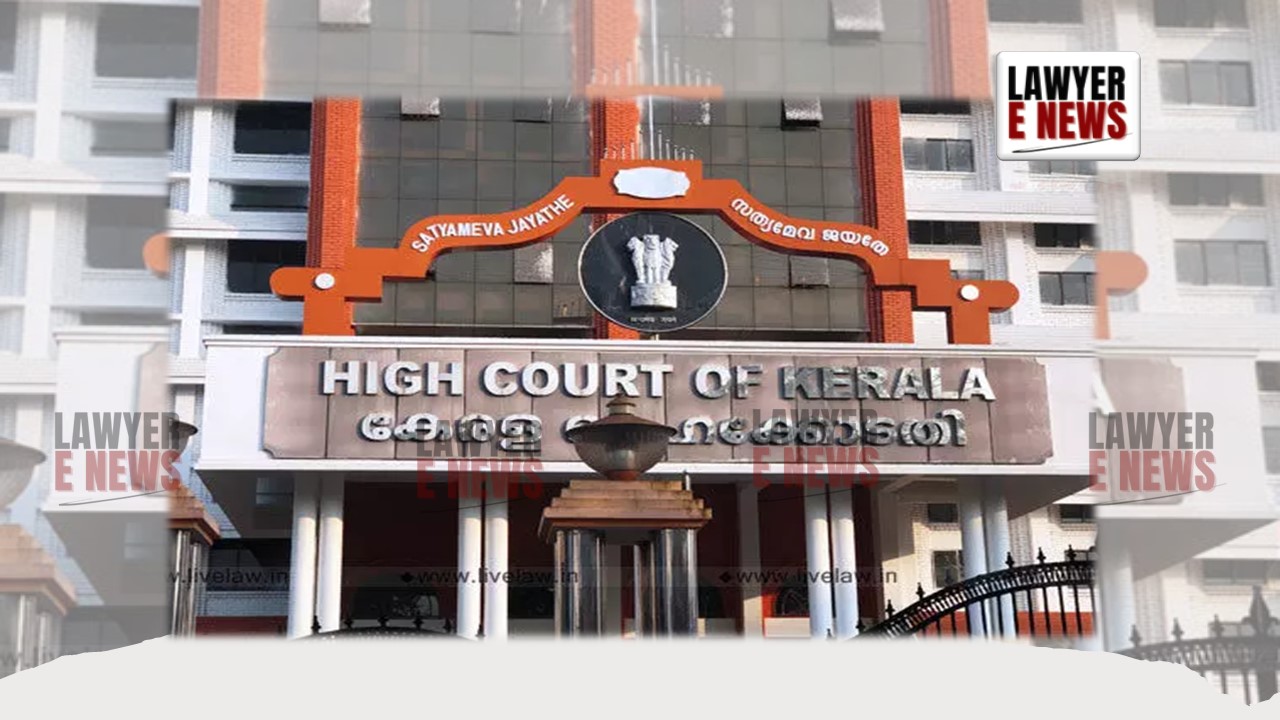-
by Admin
16 February 2026 1:47 PM



Kerala High Court set aside the order of the Special Judge, Fast Track Court, Adoor, which had denied the accused access to CCTV footage forming part of the prosecution's evidence. The High Court held that denying access to such evidence violated the accused’s right to a fair trial under criminal jurisprudence.
The court remarked, "The right of the accused to access documents, including digital evidence forming part of the prosecution's records, is essential for a fair trial unless it infringes on the privacy of the victim."
The case pertains to allegations against the petitioner, Aji, under the Indian Penal Code (Sections 447 and 354) and the Protection of Children from Sexual Offences Act, 2012 (POCSO) (Sections 7 read with 8, and 11(i) read with 12). The accusations stemmed from incidents that allegedly occurred on March 13 and 14, 2021.
The petitioner sought access to CCTV footage in the prosecution’s custody, which purportedly recorded events relevant to the case. The footage was submitted as evidence in a pendrive. The Special Court, however, dismissed the petitioner’s application, citing two reasons:
The pendrive did not contain footage of the incident on March 13, 2021, as alleged by the prosecution. The footage lacked certification under Section 65B of the Indian Evidence Act, 1872, which governs the admissibility of electronic evidence. The petitioner challenged this denial through a Criminal Revision Petition, asserting that access to the footage was crucial for his defense.
Does denying the accused access to CCTV footage violate their right to a fair trial?
Can uncertified electronic evidence (under Section 65B of the Evidence Act) be viewed for defense preparation, even if its admissibility is undecided?
How should courts balance the privacy rights of victims with the accused's right to access evidence?
The court emphasized that a fair trial includes the accused's right to prepare an effective defense by accessing prosecution evidence. The court ruled that denying the accused access to the CCTV visuals violated this fundamental principle. Referring to the Supreme Court's ruling in Gopalakrishnan @ Dileep v. State of Kerala (AIR 1996 SC 1393), the court noted that access to evidence must be provided unless doing so compromises the victim's privacy.
The court stated:
"The accused has a right of access to the documents, including digital evidence, forming part of the prosecution's records. Such a right cannot be denied, as it is an essential element of a fair trial."
The Special Judge had refused access on the ground that the footage was uncertified under Section 65B of the Evidence Act. The High Court clarified that while the admissibility of such evidence must be decided by the trial court during the trial, the lack of certification does not preclude the accused from viewing it for defense purposes.
"Non-certification under Section 65B does not prevent preliminary access to electronic evidence by the accused for preparing their defense. Admissibility is a matter to be decided during the trial."
The court recognized the need to protect the victim’s privacy while ensuring that the accused's rights were not unduly restricted. It directed the trial court to allow the accused and their counsel to view the footage under regulated conditions to prevent misuse.
"Balancing privacy concerns with the accused's right to a fair trial is crucial. The accused may view the visuals in the presence of court officers to ensure fairness while safeguarding the victim's privacy."
The High Court criticized the Special Judge's reasoning that viewing the footage was "not necessary" because it did not cover certain areas where the alleged incidents occurred. The court noted that even partial footage could assist the defense, and such decisions must be left to the accused and their counsel.
The Kerala High Court allowed the revision petition and set aside the order of the Special Judge. It directed the trial court to permit the accused and his counsel to view the CCTV footage either before or during the trial under regulated conditions.
The accused and his counsel are granted access to view the CCTV visuals from March 13 and 14, 2021.
The viewing must be facilitated under the supervision of the trial court to protect the victim’s privacy.
The admissibility of the footage under Section 65B of the Evidence Act will be determined by the trial court during the trial.
Key Takeaways from the Judgment
Fair Trial and Defense Rights: Denying access to prosecution evidence, including digital evidence, undermines the accused’s right to a fair trial.
Admissibility vs. Access: Lack of certification under Section 65B does not bar preliminary access for defense purposes. Admissibility is a matter for trial.
Privacy and Regulation: Courts must balance the victim's privacy with the accused’s rights by imposing safeguards such as supervised access.
Date of Decision: November 8, 2024
